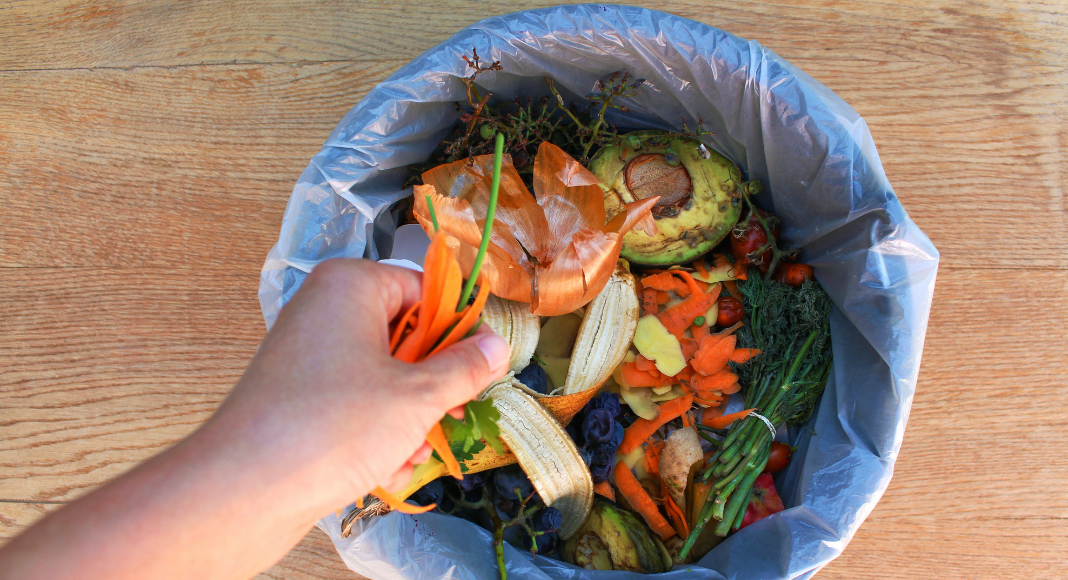 One of the most important contributions we can make to society is to help reduce food waste. Based on estimates from the United States Department of Agriculture (USDA) Economic Research Service, food waste is estimated at between 30-40% of the U.S.’s food supply. This amount of waste significantly impacts food security, resource conservation, and climate change.
One of the most important contributions we can make to society is to help reduce food waste. Based on estimates from the United States Department of Agriculture (USDA) Economic Research Service, food waste is estimated at between 30-40% of the U.S.’s food supply. This amount of waste significantly impacts food security, resource conservation, and climate change.
There are many large-scale initiatives to help combat food waste, but each one of us can do our part in reducing food waste. Being mindful and resourceful will save money and help our planet. Teaching youth the importance of not wasting food will support our current situation and help shape the future habits of our society.
Ways to Reduce Wasted Food (Adapted from USDA recommendations)
Planning, prepping, and storing food can help your household waste less food. Below are some tips to help you do just that:
Planning Tips
- By simply making a list with weekly meals in mind, you can save money and time and eat healthier food. If you buy no more than what you expect to use, you will be more likely to keep it fresh and use it all.
- Keep a running list of meals and their ingredients that your household already enjoys. That way, you can easily choose, shop for, and prepare meals.
- Make your shopping list based on how many meals you’ll eat at home. Will you eat out this week? How often?
- Plan your meals for the week before you go shopping and buy only the things needed for those meals.
- Include quantities on your shopping list, noting how many meals you’ll make with each item to avoid overbuying. For example, salad greens – enough for two lunches.
- Look in your refrigerator and cupboards first to avoid buying food you already have, make a list each week of what needs to be used up, and plan upcoming meals around it.
- Buy only what you need and will use. Buying in bulk only saves money if you can use the food before it spoils.
Storage Tips
- It is easy to overbuy or forget about fresh fruits and vegetables. Store fruits and vegetables for maximum freshness; they’ll taste better and last longer, helping you to eat more of them.
- Find out how to store fruits and vegetables, so they stay fresh longer inside or outside your refrigerator.
- Freeze, preserve, or can surplus fruits and vegetables – especially abundant seasonal produce.
- Many fruits give off natural gases as they ripen, making other nearby produce spoil faster. Store bananas, apples, and tomatoes by themselves, and store fruits and vegetables in different bins.
- Wait to wash berries until you want to eat them to prevent mold.
- If you like to eat fruit at room temperature, but it should be stored in the refrigerator for maximum freshness, take what you’ll eat for the day out of the refrigerator in the morning.
Prep Tips
- Prepare perishable foods soon after shopping. It will be easier to whip up meals or snacks later in the week, saving time, effort, and money.
- When you get home from the store, take the time to wash, dry, chop, dice, slice, and place your fresh food items in clear storage containers for snacks and easy cooking.
- Freeze food such as bread, sliced fruit, or meat that you know you won’t be able to eat in time.
- Cut your time in the kitchen by preparing and freezing meals ahead of time.
- Prepare and cook perishable items, then freeze them for use throughout the month. For example, bake and freeze chicken breasts for future use.
Thriftiness Tips
- Be mindful of old ingredients and leftovers you need to use up. You’ll waste less and may even find a new favorite dish.
- Shop in your refrigerator first! Cook or eat what you already have at home before buying more.
- Have produce that’s past its prime? It may still be fine for cooking. Think soups, casseroles, stir-fries, sauces, baked goods, pancakes, or smoothies.
- If safe and healthy, use the edible parts of food that you normally do not eat. For example, stale bread can be used to make croutons, beet tops can be sautéed for a delicious side dish, and vegetable scraps can be made into stock.
- Are you likely to have leftovers from any of your meals? Plan an “eat the leftovers” night each week. Casseroles, stir-fries, frittatas, soups, and smoothies are great ways to use leftovers.
- At restaurants, order only what you can finish by asking about portion sizes and be aware of side dishes included with entrees. Take home the leftovers and keep them for or to make your next meal.
- At all-you-can-eat buffets, take only what you can eat.
- Nutritious, safe, and untouched food can be donated to food banks to help those in need.
- Compost food scraps rather than throwing them away.
Learn the difference between “sell-by,” “use-by,” “best-by,” and expiration dates:
- “Best if Used By/Before” indicates when a product will be of the best flavor or quality. It is not a purchase or safety date.
- “Sell-By” date tells the store how long to display the product for sale for inventory management. It is not a safety date.
- “Use-By” date is the last date recommended for using the product while at peak quality. It is not a safety date except for when used on infant formula.




















